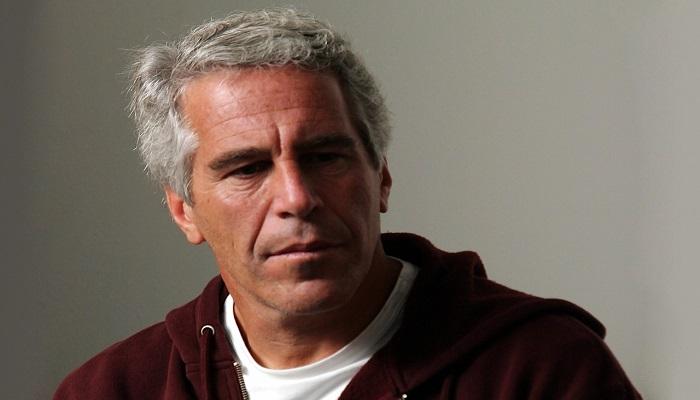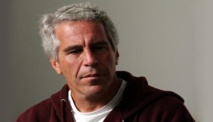The multimillionaire hedge fund manager lavished at least 30 million dollars on universities, scientists, politicians, cultural organizations, think tanks - as well as his local police department, according to records of three of his charities. Records for a fourth were not available.
That 30-million-dollar figure includes at least 2 million dollars doled out after a short stint in the Palm Beach stockade that resulted when a 53-page federal sex trafficking indictment got whittled down to a pair of minor prostitution-related charges late in the last decade.
For those organizations that hung onto the money, is there a moral obligation to give it back, or alternatively, pay it forward to organizations that would benefit, for example, young sexual assault victims such as those Epstein allegedly victimized?
"There isn't one standard for one organization to follow, and there isn't a legal obligation to return the funds," said Joan Harrington, director of social sector ethics at the Markkula Center for Applied Ethics at Santa Clara University. "So it really does become an ethical issue."
Records show that Epstein, who maintained an opulent waterfront estate in Palm Beach, sought to ingratiate himself with local officials. Sometime between June 1, 2001, and May 31, 2002, while accusers say he was operating what amounted to a sexual pyramid scheme - luring underage girls to his home then having them recruit other girls - he gave 50,000 dollars to the Palm Beach Police Scholarship Fund, which offers tuition help to the children of law officers. This was followed by an October 16, 2003, donation to the Town of Palm Beach for 36,000 dollars.
Finally, Epstein donated 90,000 dollars to the Palm Beach Police Department on December 14, 2004 - just a few months before the initial police investigation into his conduct began.
With Epstein under scrutiny, the 90,000 dollars was held under the pretense of purchasing new equipment. The department reasoned that returning the money might have tipped off Epstein to the fact that he was under scrutiny. The department issued him a 90,000-dollar refund the day he turned himself in at the local jail.
After he pleaded guilty to the much-reduced charges, Epstein leveraged his charitable money to get special treatment from a different local law enforcement agency. He persuaded the Palm Beach Sheriff's Office to allow him out on work release - 12 hours a day, six days a week - provided Epstein pay for a deputy to keep an eye on his whereabouts.
His "employer" was the Florida Science Foundation, a charity Epstein created a year before his sentence commenced. The foundation footed the 120,000-dollar-plus bill for the deputies.
On Friday, the Palm Beach Sheriff announced an internal affairs investigation into its handling of Epstein.
Epstein's donations also reflect an interest in higher education. Ohio State University released a statement last week saying it would take "action as appropriate" on more than 2.5 million dollars it had received from Epstein and Epstein-related organizations. The school did not further elaborate.
In 2007, Epstein gave 47 million dollars to a foundation run by the Ohio-based Wexner family, owners of the lingerie chain Victoria's Secret. That year, the foundation, along with another foundation created by Epstein, each gave 2.5 million dollars to Ohio State; by way of gratitude for the 5 million dollars, the school named a football complex after Wexner.
Wexner is widely reported to have been a client of Epstein's. Last week, Wexner told his company's employees that he was not aware of Epstein's alleged crimes.
In light of the renewed focus on the allegations against Epstein, the school said it would undertake a "complete review" of Epstein's history of giving, all the way back to a 1,000-dollar donation to Ohio State in 1990. The school told the Miami Herald it had no further updates.
The heightened scrutiny of Epstein's charitable endeavors follows an investigative series by the Miami Herald, "Perversion of Justice," and his arrest on sex trafficking charges earlier this month as he landed at New Jersey's Teterboro Airport on his private jet.
For Harrington, with the Santa Clara ethics center, Ohio State's statement represents a template for how other institutions could handle potential Epstein-linked funds.
"That level of transparency is really sound," she said. "Not only that, it's logical - one day someone is going to find out that he'd given in the 1990s. The honorable thing would be to look at it and tell people about the process and decision making."
She also said the school is protecting itself when it comes to future donors.
"You may have someone say, 'They should have done something about Epstein; they weren't transparent, and didn't do the right thing.'"
Only one institution received more Epstein-linked funds than Ohio State: Harvard University. Ever since Epstein pleaded guilty to the reduced charges in Palm Beach County, Harvard has faced periodic pressure to reconsider its decision to keep the money. Harvard has spurned all such suggestions, some from the Harvard Crimson student newspaper, that accepting the money and embracing Epstein was unseemly.
Epstein did not attend Harvard - indeed, he never graduated from college. But for at least a decade, Epstein used his largess, combined with an apparent interest in academia, to cultivate relationships there. His relationship with Harvard coincided with a longtime friendship with Alan Dershowitz, the famous attorney and emeritus professor of law.
Public filings from two of Epstein's charities show that he donated to Harvard regularly from 1998 until 2008, for a total of approximately 2.1 million dollars. Roughly half went directly to the school. Over a quarter went to one of Harvard's governing boards, the President and Fellows of Harvard College. Epstein's charities also donated 50,000 dollars to Harvard Hillel.
After his conviction, Epstein donated another 50,000 dollars in 2016 to the Hasty Pudding Institute of 1770, an irreverent Harvard social club and theater troupe. Hasty Pudding lists Epstein as a 2014 donor as well, although public charity filings do not include that donation.
Representatives for the troupe did not respond to a request for comment.
Epstein also continued to meet with Harvard staff even after he was convicted as a sex offender, as first reported by NBC. An online personal calendar from renowned geneticist George Church shows six scheduled meetings with Epstein in 2014.
Epstein also donated more than 100,000 dollars to Verse Video Inc, a nonprofit organization that funds the PBS series "Poetry in America." The show is directed and hosted by Elisa New, a Harvard professor and the wife of former Harvard President Lawrence Summers. New is also listed as the president of Verse in its 2017 public filing. Through a representative, Summers, seen in photos socializing with Epstein before his 2008 conviction, declined to comment. A representative for Verse said the money had already been spent in service of its mission.
To date, Harvard has acknowledged accepting a total of 6.5 million dollars, which it said had already been spent and which it does not plan to give back.
In an email, Jonathan Swain, director of media relations for Harvard, said the school had no further comment.
The bulk of Epstein's donations occurred before his original 2008 plea deal, which required him to register as a sex offender. After his sentence, Epstein continued to give, albeit at a reduced rate.
For Benjamin Soskis, a research associate in the Center on Nonprofits and Philanthropy at the Urban Institute, a fine line exists between giving to launder a reputation, and giving to make restitution.
"I don't think as a society, when someone committed a crime, and served in due course the penalty for that crime, that he or she is prohibited exercising philanthropy to make good," he said. "On the other hand, nonprofits have to be really cognizant of how those types of gifts can serve as a way to erase the stigmas and augment peoples' reputations, and reincorporate them into high society. It's a trade-off they need to think carefully about."
Santa Clara's Harrington said it is usually difficult for a nonprofit to turn down any money, let alone return it - but that the cases of Weinstein, who has not been convicted, and Cosby, who has, set some precedent. The University of Southern California turned down a 5-million-dollar donation from Weinstein after his accusers went public. The money was earmarked to promote women filmmakers. Spelman College shut down a professorship in Cosby's name and returned the funds to a charity run by Cosby's wife.
Others took a different route. Rutgers University accepted 100,000 dollars Weinstein gave to help establish a position to study the intersection of feminism and the media.
"We think devoting these funds to advance women's equality is a better use of the dollars than returning the donation," Dory Devlin, director of Rutgers media relations, said in a 2017 statement.
Harrington also points to the case of the Sackler family, which has been accused of helping fuel the opioid crisis through its financing of Purdue Pharma, maker of the drug OxyContin. Though the Sacklers have not been convicted, organizations including the Louvre Museum have already removed the family's name from its buildings to avoid reputational risk.
And then there are the cultural institutions and prep schools that enjoyed Epstein's support. Starting in 1998, Epstein gave a total of 260,000 dollars to Ballet Florida, a dance company and school based in West Palm Beach, with the express purpose that the funds be used on therapeutic massages for the dancers.
Despite what is now known about Epstein, the probity of the donations was never in doubt at the time, according to former employees.
"The dancers liked it," Joseph Bucheck III, a former performer for the company, said. "They were real massage therapists."
The dancers received the massages at a chiropractic and wellness center run by Thomas and Dawn Rofrano. The pair now run the Natural Medicine Clinic in Palm Beach Gardens. The Rofranos did not respond to repeated requests for comment.
Of note is that Epstein's charities are not, for the most part, eponymous, meaning someone could receive money from the hedge fund manager and conceivably not know it.
The records examined by the Herald do not indicate whether some of the money could have been refunded at some point.
In the context of donations that came after he served his sentence, Michael Rosen, president of ML Innovations, a fundraising and marketing group for nonprofits, says it's important for charities to consider the nature of the person's offence before accepting a donation.
"What would be an unacceptable source for one charity may be acceptable for another," Rosen said.
----------------------------------------------------------------------------------------------------------------------









 Home
Home Politics
Politics











